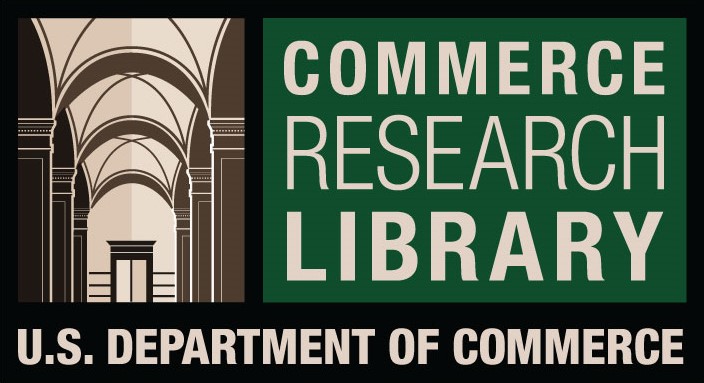The Applicability of Twenty-First Century Skills in English as a Foreign Language (EFL) Classrooms: Potentials and Challenges
DOI:
https://doi.org/10.61841/66q8kg40Keywords:
Learning; acquisition, 21st century skills, potentials, challengesAbstract
Learning, nowadays, is no longer restricted to the comprehensive acquisition and full grasp of facts and truths. In a century that brings along large advances in information and communication technologies (ICT) in addition to the “unprecedented challenges” at all level; social, economic and environmental, learners from all over the world are required to acquire certain skills and competencies in order to keep up with these advances and challenges and guarantee their positions as active partakers in the labour market in the future. With this in mind, light has been shed on the role of education, especially at the tertiary level, to aid learners achieve such goals. This study was carried out in a newly founded establishment namely the University of Jeddah and had as objective to investigate the extent to which the 21st century skills, which are classified into three sets, are applied and acquired as well as the potential challenges that may hamper the applicability of such skills. Results showed that the participants in this study are frequently and professionally using the ICT set of skills while the third set namely life and career is given less importance from the part of the same subjects. Peer-dominance and proficiency discrepancy are among the challenges that Saudi learners face to acquire the 21st century skills. The findings also imply that Saudi pedagogists and educators need to agree on the skills to be considered the most critical, to pay them particular focus and thus come up with well- defined frameworks that organize the interrelationship between learning and skills so as to create and adopt the most appropriate teaching methods that would help the Saudi learners acquire and develop these key skills.
Downloads
References
1. Abdullah, N.B. (2016). Life and Career Skills among TVET Students in Polytechnics in Malaysia. Retrieved from: https://pdfs.semanticscholar.org/53ea/1b0f7f3528d2e8db229b54ee8c329efe277e.pdf
2. Bell, S. (2010). Project- Based Learning for the 21st Skills: Skills for the Future. The Clearing House, 83(2), 39-43.
3. Bhuyan, M.H. (2016). 21st Century Challenges in Teaching and Learning (ICT in Higher Education). Retrieved from: https://www.researchgate.net/publication/293683561
4. Boholano, H.B. (2017). Smart Social Networking: 21st Century Teaching and Learning Skills. Research in Pedagogy, 7(1), 21-29.
5. Chase, C., Chin, D., Oppezzo, M., Schwartz, D., Chin, D., & Schwartz, D. (2015). Teachable Agents and the Protégé Effect: Increasing the Effort Towards Learning Journal of Science Education Technology 18(4), 334–352.
6. Daghan, G., Nuhoglu Kibar, P., Menzi Cetin, N., Telli, E., & Akkoyunlu, B. (2017). 21st century learner and teacher characteristics from the perspectives of the pre-service information technologies pre-service teachers. Education Technology Theory and Practice, 7(2), 215-235. doi:10.17943/etku.305062.
7. Eaton, S.E. (2010). Global Trends in Language Learning in the Twenty First century. Calgary: Onate Press.
8. Elyas, T., and Badawood, O. (2016). English Language Educational Policy in Saudi Arabia Post 21st Century: Enacted Curriculum, Identity, and Modernization: A Critical Discourse Analysis Approach. FIRE: Forum for International Research in Education, 3(3), 70-81.
9. Fandino, Y.J. (2013). 21st Century Skills and the English Foreign Language Classroom: A Call for More Awareness in Colombia. Gist Education and Learning Research Journal, 7, 190-208.
10. Gurultu, E., Aslan, M., & Alci, B. (2018). Investigation of elementary school teachers’ competences in light of 21st century skills. Academic Social Studies Journal, 6(71), 543-560.
11. Handayani, N. (2018). Teachers’ Voice: Reformulating the Roles of the English Teachers in 21st Century.
International Journal of Educational Science and Research, 8(3), 13-26.
12. Kim, M.; Pollard, V. (2017). A modest critical pedagogy for English as a foreign language education.
Education as Change, 21(1), 50–72.
13. Lamb, S., Doecke, E., and Maire, Q. (2017). Key Skills for the 21st Century: An Evidence-Based Review. Melbourne, Australia.
14. Larson, L. C., & Miller, T. N. (2011). 21st century skills: Prepare students for the future. Kappa Delta Pi Record, 47(3), 121- 123.
15. Ledward, B. C., & Hirata, D. (2011). An overview of 21st century skills. Summary of 21st century skills for students and teachers. Honolulu: Kamehameha Schools–Research & Evaluation.
16. OECD (2018). The case for 21st-century learning. Retrieved from: https://www.oecd.org/general/thecasefor21st-centurylearning.htm
17. Ovilia, R., and Asfina, R. (2017). 21st Century learning: Is ICT Really Integrated in EFL Classrooms or Merely Segregated Outside the Classroom? EnJourMe, 2(1), 1-17.
18. Partnership for 21st Century Skills (2015). Framework for 21st Century Learning 01/16. Retrieved
19. from http://www.p21.org/storage/documents/docs/P21_framework_0816.pdf
20. Reynolds, R., Notari, M., Taveres, N., and Lee, C. (2016). 21st Century Skills Development Through Enquiry Based Learning from Theory to Practice. Springer Science.
21. Runco, M. & Richards, R. (Eds.). (1997). Eminent creativity, everyday creativity, and health. Greenwood Publishing Group.
22. Saleh, S.E,. (2019). Critical Thinking as a 21st Century Skill: Conceptions, Implementations, and Challenges in the EFL Classroom. European Journal of Foreign Language Teaching, 4(1), 1-16.
23. Sarica, N., and Cavus, G.N. (2009). New trends in 21st Century English learning. Procedia - Social and Behavioral Sciences 1(1), 439-445.
24. Shoffner, M., De Oliveira, L., & Angus, R. (2010). Multiliteracies in the secondary English classroom: Becoming literate in the 21st century. English Teaching: Practice and Critique, 9(1), 75-89.
25. Silva, E. (2009). Measuring skills for 21st-century learning. Phi Delta Kappan, 90(09), 630-634.
26. Yamani, I. (2014). EFL students' attitudes towards the development of speaking skills via project-based learning: An omnipresent learning perspective. Unpublished PhD Dissertation. Gazi University Graduate School of Educational Sciences, Ankara.
Downloads
Published
Issue
Section
License

This work is licensed under a Creative Commons Attribution 4.0 International License.
You are free to:
- Share — copy and redistribute the material in any medium or format for any purpose, even commercially.
- Adapt — remix, transform, and build upon the material for any purpose, even commercially.
- The licensor cannot revoke these freedoms as long as you follow the license terms.
Under the following terms:
- Attribution — You must give appropriate credit , provide a link to the license, and indicate if changes were made . You may do so in any reasonable manner, but not in any way that suggests the licensor endorses you or your use.
- No additional restrictions — You may not apply legal terms or technological measures that legally restrict others from doing anything the license permits.
Notices:
You do not have to comply with the license for elements of the material in the public domain or where your use is permitted by an applicable exception or limitation .
No warranties are given. The license may not give you all of the permissions necessary for your intended use. For example, other rights such as publicity, privacy, or moral rights may limit how you use the material.









